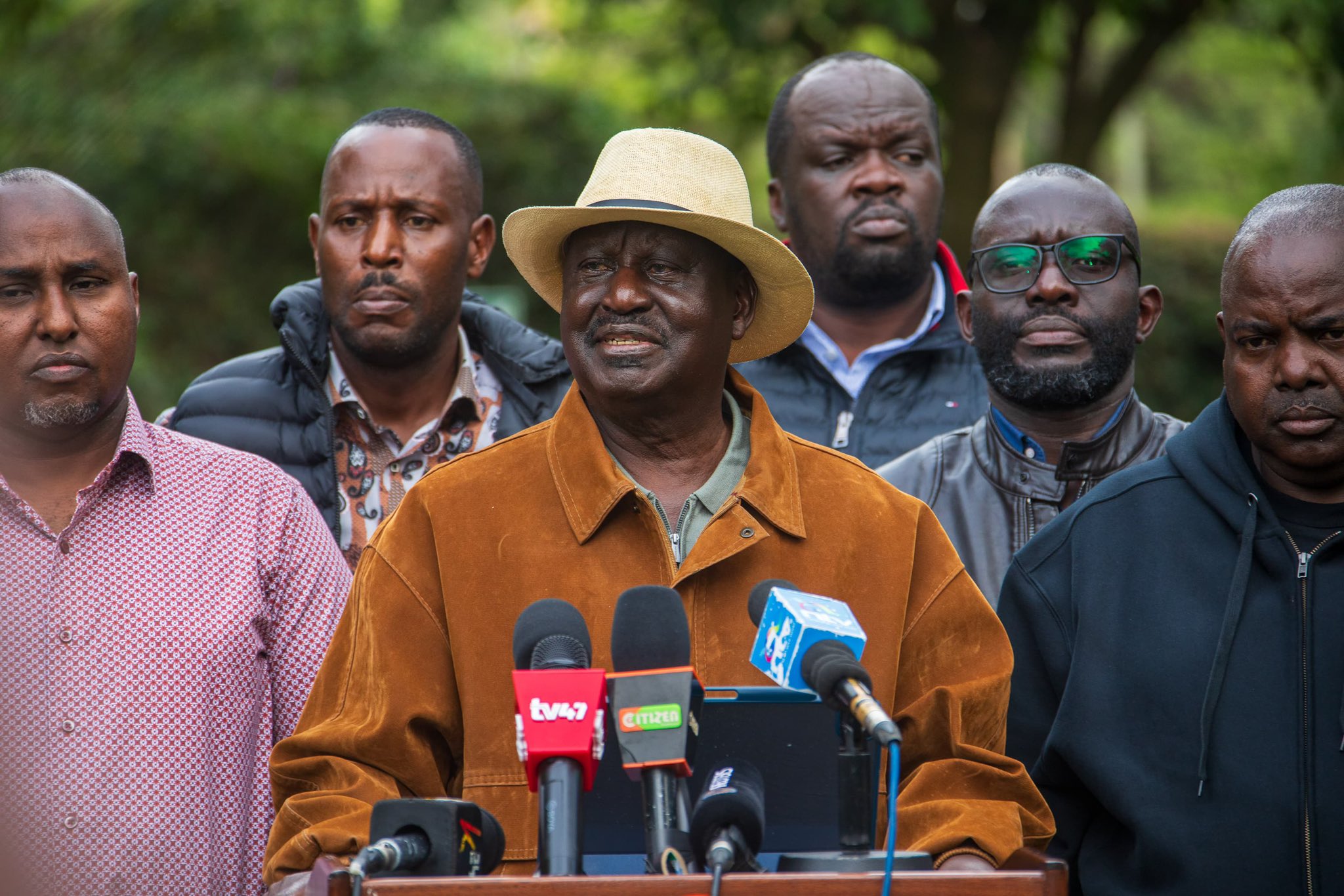
Sabasaba Legacy: Raila proposes national conclave to address Kenya’s challenges
Former Prime Minister Raila Odinga is advocating for an inclusive, intergenerational national dialogue to help Kenya navigate its challenges and establish a peaceful and sustainable future amid rising unrest and political agitation.
Addressing the press during the 35th commemoration of Saba Saba, the leader of the Orange Democratic Movement proposed a “national conclave” that would unite voices from across various divides to craft necessary reforms aimed at strengthening the country’s governance.
According to Raila, the outcomes of this dialogue should be subjected to a national referendum, allowing all Kenyans to have a say in their nation’s future.
“I propose an inclusive intergenerational national conclave to hear our people across all divides and come up with irreducible reforms and changes necessary to take the country forward,” Raila stated.
Raila reiterated that the proposed dialogue must be guided by clear terms of reference and should include “serious and sober minds” committed to the national interest.
The Legacy of Saba Saba
Reflecting on Saba Saba, Odinga reiterated that the movement, commemorated on July 7, was rooted in the landmark pro-democracy rally of 1990. He described it as inclusive, intergenerational, and non-partisan, representing a united struggle for freedom, equality, and constitutional reform that transcended communities, generations, professions, and political affiliations.
“Saba Saba was not one group against the entire nation, it was not community against that community, or this age against that age. The movement stood for peaceful and constitutional change of guard,” he said “That is the reason it focused singularly in the amendment and later in the overhaul of the constitution. These features are what made Saba Saba succeed,”
Odinga expressed concern over the inconsistent recognition of Saba Saba in recent years, lamenting that it has led to a situation where “one moment it is important, the next moment it is not.” He cautioned against attempts to rewrite history or exploit its message for political gain.
“It is quite unfortunate that some of the people we were fighting then and who sanctioned arrests are trying to hide behind Saba Saba to advance their political fortunes. Some of them are alive today and now are masquerading as liberators,” he stated.
He clarified that the conveners of Saba Saba, including Kenneth Matiba, Charles Rubia, and himself, grounded the day’s struggle in a shared vision that ultimately led to multipartyism in Kenya and the new Constitution.
In light of the current political and social tensions, Odinga urged Kenyans to choose unity over chaos and constructive engagement.
The question we have to ask ourselves is where do we go from here? Do we embrace chaos or a coming together of minds and country? He asked “As a living architect of the events leading to Saba Saba, I choose a coming together of minds and country in the interest of the country I long fought for its progress, stability and prosperity.”
He reaffirmed his commitment to peaceful and constitutional change, warning against turning Saba Saba into merely another day of confrontation.
